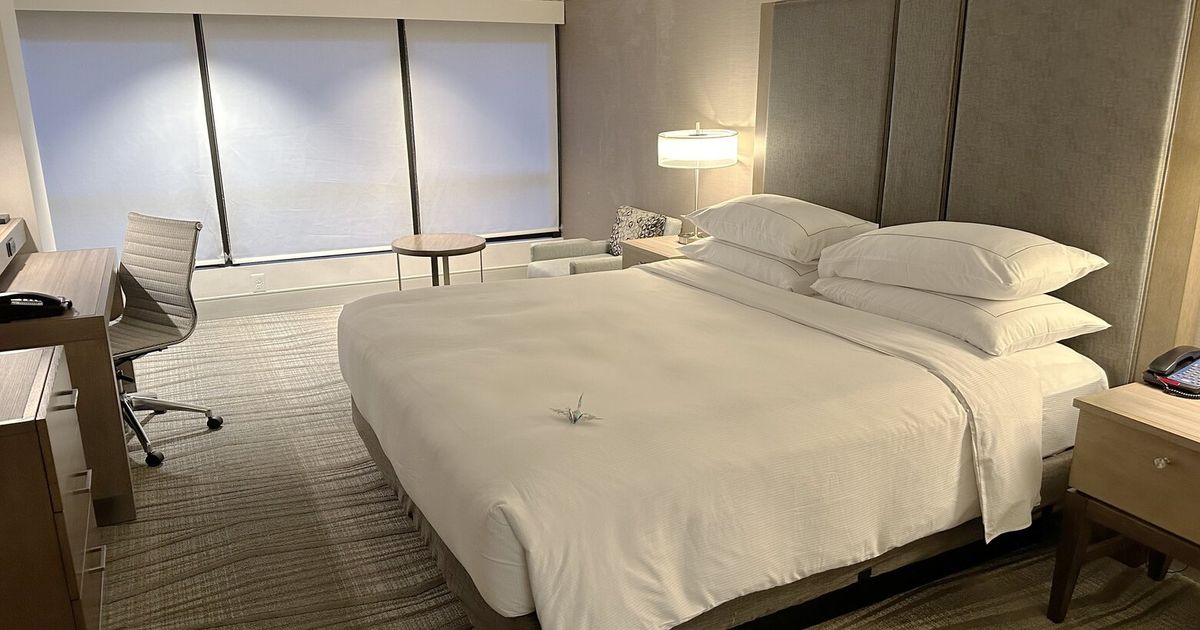Last week’s sale of the downtown Seattle Hilton is the latest warning sign from a hospitality sector still finding its way back from COVID-19.
Tokyo-based APA Group paid $69 million for the 256-room property, which, when adjusted for inflation, is 15% less than seller New York City-based Westbrook Partners paid for it in 2016, according to county property records.
That discount is partly about age. The hotel, which has already been converted to APA’s Coast Hotels brand, has been a fixture at the corner of Sixth Avenue and University Street since 1970.
But the price also reflects continued uncertainty around Seattle’s visitor-based economy, especially in lodging.
Coast, which runs hotels across western North America, including in Bellevue, Pullman, SeaTac and Wenatchee, declined to share sales numbers or other data for the former Hilton.
But overall occupancy in downtown Seattle, though up since the pandemic, still lags 2019 even as costs such as labor and insurance have risen, according to CBRE, a commercial real estate services and investment firm.
“If you’re selling [a hotel] today on a bottom line that is lower than it was back then, you’re going to get a lower number,” said Chris Burdett, a hotel expert and executive vice president with the Seattle office of CBRE. “That’s just pretty straightforward economics.”
Some parts of the downtown hospitality business have come back more strongly. The Seattle Convention Center expects 30% more attendees in 2024 than in 2019, according to Visit Seattle, a trade group.
Seattle’s waterfront saw 3% more visitors in 2023 than in 2019, according to the Seattle Historic Waterfront Association.
Bob Donegan, a waterfront association director (and president of Ivar’s), credits that to a rebounding cruise industry, steady progress on the city’s new waterfront park and the “growing perception that the waterfront is safe and clean.”
But other parts of the visitor-dependent economy are still in limbo.
Total downtown visitor numbers are down 7% versus 2019, according to May data posted by the Downtown Seattle Association. Crowds at Pike Place Market in April were nearly a quarter smaller, on average, than in April 2019, DSA data shows.
One particular challenge for hoteliers: The persistence of remote work and video meetings continue to hurt “business travel across the board,” Burdett said.
It all has added up to weaker demand and lower revenues for hotels. In April, downtown room rates averaged $197, which, adjusted for inflation, is around 15% below April 2019, according to data from Visit Seattle and an inflation calculator from the U.S. Bureau of Labor Statistics. Overall downtown hotel revenue was down 20% in adjusted terms.
Future prospects are also mixed. Burdett and other experts see demand getting a boost from the newly expanded Convention Center and the completion of Waterfront Park, expected in 2025. Big-time sporting events, like the FIFA World Cup in 2026, will also bring armies of free-spending visitors.
But uncertainties remain. Thanks in part to depressed business travel, demand for hotel rooms could slow.
Already, the postpandemic rebound hotels were enjoying in 2021 and 2022 is “starting to stagnate,” said Kasia Russell, a specialist in hotel appraisals at HVS Hotel Management in Portland. “We’re still moving in the right direction in terms of recovery — it’s just … slower.”
Yet even as demand slows, the number of downtown Seattle hotel rooms has grown, from 16,647 in 2019 to nearly 18,000 this year, according to CBRE, which projects it could be 2027 before downtown surpasses the average daily occupancy rate from 2019.
Another looming pressure point: More than 10 Seattle-area hotels are backed by loans that mature this year or in 2025, according to HVS, and the higher cost of capital could make refinancing difficult, especially for any underperformers.
All of which may mean bargains for investors willing to bet on the sector’s eventual recovery.
Indeed, APA bought the former Seattle Hilton for 25% below the $92 million value county tax appraisers gave it in 2023.
HVS’ Russell thinks some of that discount also likely reflects the investment the 50-plus-year-old hotel would’ve needed to “retain the Hilton brand,” which she ballparked at “upwards of $100,000 a room,” or $26 million.
Coast didn’t say how much it intends to spend on its new hotel. But a spokesperson said the property, which will continue to be run by Stonebridge Hospitality Management, will aim for “high-value guests,” both leisure and business travelers.
The hotel will also see several upgrades, including “lobby refresh,” 55-inch flat screens and in-room bidets.










